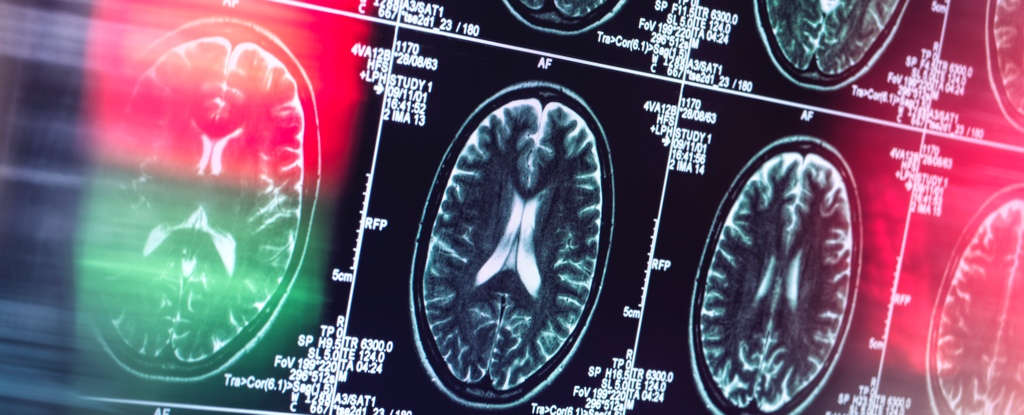
Brain Scans On Display
Researchers have identified dysfunctions in two specific brain systems in people who have psychosis – systems that help us filter attention to important internal and external information and predict or anticipate rewards.
The new study led by a team from Stanford University helps us understand how the symptoms occur, which could lead to better treatments and interventions for psychosis and the other mental health conditions that it’s linked to.
Psychosis involves disconnections from reality, like hallucinations and delusions. It can occur on its own but is also a part of conditions like schizophrenia and bipolar disorder, which scientists are still trying to figure out fully.
“This work provides a good model for understanding the development and progression of schizophrenia, which is a challenging problem,” says cognitive neuroscientist Kaustubh Supekar from Stanford University.
Supekar and his colleagues looked at brain scans of 445 people with conditions including autism, ADHD, early psychosis, and 22q11.2 deletion syndrome (a genetic condition with an increased psychosis and schizophrenia risk). They also looked at scans of 411 healthy people as controls.
Using a machine learning algorithm, the team identified differences in brain function between the groups – leading them to the anterior insula (a crucial part of the salience network filter that helps direct our attention), and the ventral striatum and related dopamine-driven pathways (that control reward-seeking).
While the research group has previously suspected the salience network might be involved, this new study supports that hypothesis and shows that the 22q11.2 deletion syndrome can be a useful way of analyzing psychosis symptoms and risk.
Differences in these areas relating to information filtering and reward prediction were significant in both people with 22q11.2 deletion syndrome and psychosis, and in people with psychosis of unknown origin, the researchers found.
“This parallel reinforces our understanding of psychosis as a condition with identifiable and consistent brain signatures,” says Vinod Menon, a cognitive neuroscientist at Stanford University.
“This process derails the normal functioning of cognitive control, allowing intrusive thoughts to dominate, culminating in symptoms we recognize as psychosis.”
The next step, potentially, is to develop treatments based on these discoveries. Part of the difficulty in treating psychosis is that it can be tricky to see what effects different methods are having on the brain, but now scientists and doctors can be more precise in terms of where they’re looking.
Existing approaches to treating psychosis, including transcranial magnetic stimulation and focused ultrasound, could be adapted to target these particular brain centers in young people at risk of psychosis, the researchers say.
The team is also keen to help reduce the stigma and increase support for those with psychosis. Conditions where people are untethered from reality can be scary to experience, and the line between normal and abnormal neurological function is not as clear as you might think.
“Our discoveries underscore the importance of approaching people with psychosis with compassion,” says Menon.
The research has been published in Molecular Psychiatry.
News Related-
High court unanimously ruled indefinite detention was unlawful while backing preventive regime
-
Cheika set for contract extension as another Wallabies head coaching candidate slips by
-
Analysis-West's de-risking starts to bite China's prospects
-
'Beyond a joke' Labor won't ensure PTSD protections: MP
-
Formula One season driver ratings: Lando Norris shines as Max Verstappen nears perfection
-
Catalina golfer Tony Riches scores Guinness World Record four holes in one on same hole
-
Florida coach Billy Napier fires assistants Sean Spencer, Corey Raymond with expected staff shakeup ahead
-
Rohingyan refugee NZYQ accidentally named in documents published by high court
-
Colorado loses commitments of 2 more high school recruits
-
Queensland Health issues urgent patient safety alert over national bacteria outbreak
-
Townsville Community Pantry 'distressed' by fruit, vegetable waste at Aldi supermarket
-
What Is The Beaver Moon And What Does It Mean For You?
-
Labor senator Pat Dodson to resign from politics due to health issues
-
Hamas releases 11 more hostages, as Israel agrees to extend ceasefire
